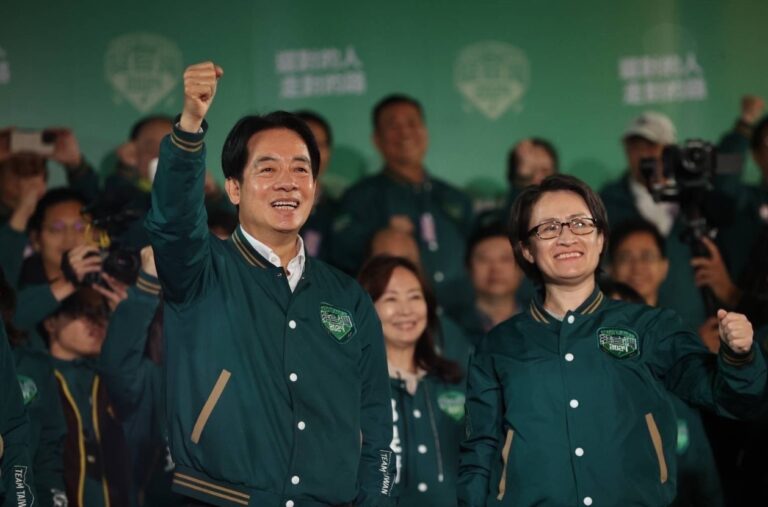The representative of the Democratic Progressive Party (DPP), skeptical of Beijing, triumphed at the polls. Taipei calls on the Chinese to face reality and respect the outcome of the vote. But China reiterates: “Reunification inevitable, no to separatism”.
Table of Contents
The elections in Taiwan
William Lai won the elections in Taiwan. The incumbent vice president thanked his supporters for the electoral outcome which will make him president from May 20th.
He overcame an unprecedented three-way race, giving the Democratic Progressive Party (DPP), skeptical of China, a third consecutive mandate as has never happened since democratic elections for the island’s highest institutional position were introduced in 1996.
The victory came despite what the DPP denounced as the People’s Republic’s most heavy-handed attempt to meddle in the election through means such as a disinformation campaign and an overt military threat. China has never governed Taiwan, a democracy of 23 million inhabitants. But considers it an “inalienable” part of its territory to be reunified by force if necessary.
The Chinese disappointment
The result is the worst that Chinese President Xi Jinping could have expected, because the risk of another four years of identity politics projected on an international scale is that of a further distancing of Taipei from Beijing. And the massive youth turnout to vote is a clear alarm signal for the communist leadership.
In the first official comment, China did not hide its disappointment. The findings reveal that the DPP “cannot represent the island’s mainstream public opinion” and “will not prevent the inevitable trend of China’s reunification,” said Chen Binhua, spokesman for the Taiwan Affairs Bureau.
“The elections – he added – will not change the basic panorama and the tendency towards the development of relations between the two sides of the Strait”. As well as the fight against any attempt at independence.
The voters rejected the repeated even assertive military appeals made by Beijing not to vote for William Lai. Who, on the contrary, won by a large margin despite the “troublemaker” appeal received from the communist authorities with accusations of being a separatist
USA delegation arrives in Taiwan
William Lai vowed to defend the island from Chinese “intimidation”. And today an unofficial delegation sent by the US arrives in Taiwan.
Tomorrow he will meet with a number of leading political figures and convey the American people’s congratulations to Taiwan on the success of the elections,” it said in a statement.
Taiwan’s sovereignty and future are one of the major points of contention between Beijing and Washington. If China were to launch a heavy post-vote military retaliation, ties between the two superpowers could further deteriorate.
Before the vote, China had threatened voters to make “the right choice”, because the alternative “is between peace and war”. So what are the emerging scenarios?
The scenarios
Taiwan can count on US support but Washington’s position has changed from support for independence to “de facto sovereignty”. The first possible scenario is the maintenance of the status quo which since 1949 has allowed Taiwan to escape Chinese control, despite the military maneuvers of recent years.
Analysts do not expect a strong reaction from Beijing soon. William Lai will take office on May 20 and we will wait for that date to understand the level of diplomatic relations between the parties. It must also be considered that the USA is in a particular year, due to the presidential elections in November.
Biden will be busy with his domestic agenda and therefore could keep his every move towards Taiwan in the background.
Read also: 2024 is a year of decisive elections: where to look and what to expect












